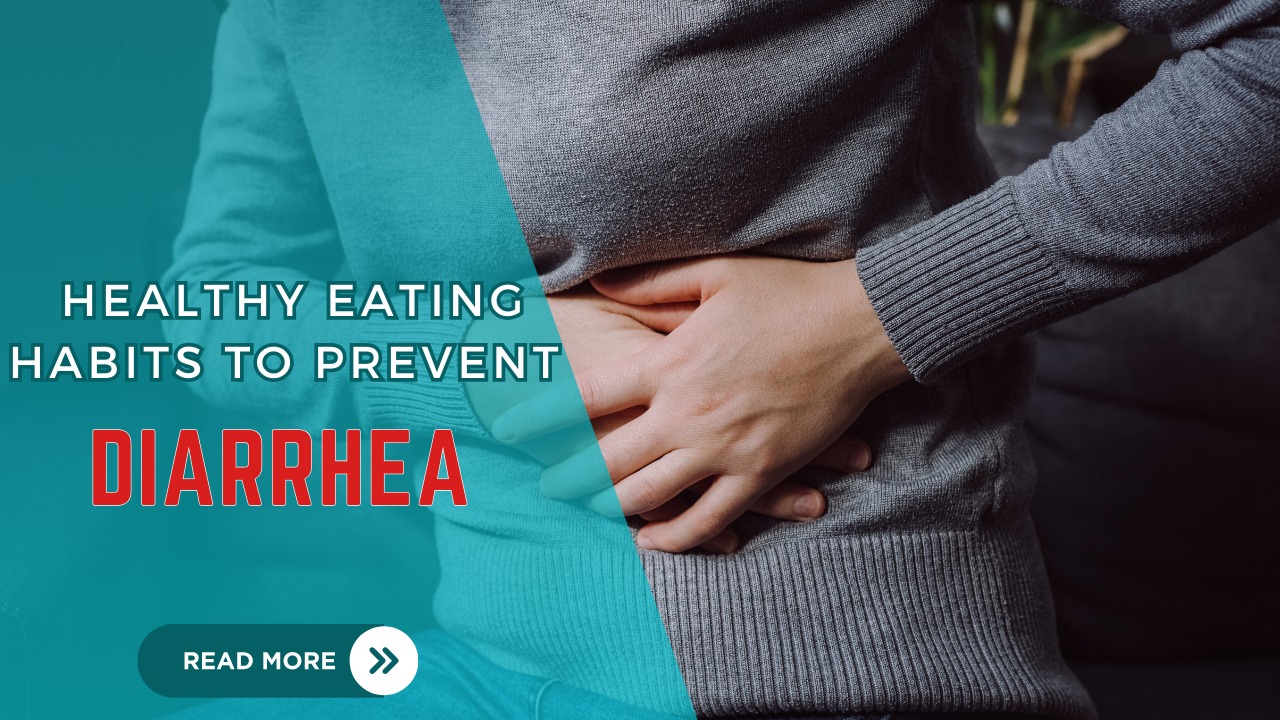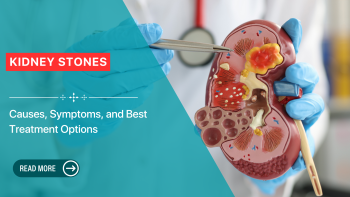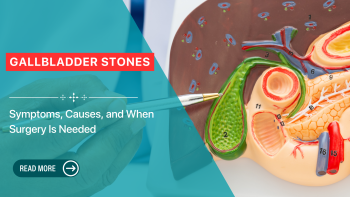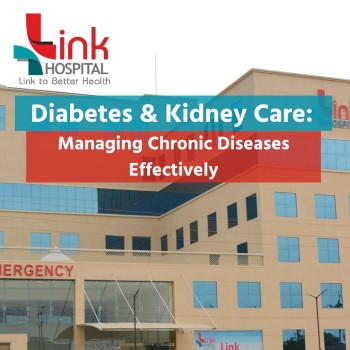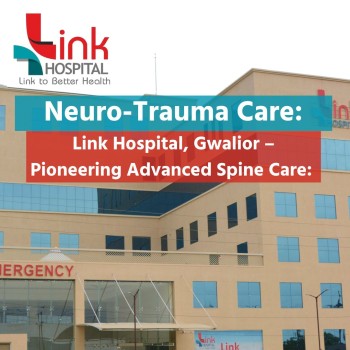Diarrhea
is a common yet often preventable digestive issue that can disrupt your daily
life. While it’s frequently caused by infections or reactions to certain
medications, poor dietary habits can also play a significant role in triggering
or exacerbating this uncomfortable condition. By adopting healthy eating
habits, you can not only prevent diarrhoea but also support overall digestive
health. In this blog, we'll explore practical dietary strategies to prevent
diarrhoea and introduce you to Link Hospital in Gwalior, a premier medical
facility known for its advanced USA technology Trauma Center.
Understanding Diarrhea
and Its Causes
Diarrhoea is characterized by the passage of loose, watery stools more frequently than usual. It can be acute, lasting a few days, or chronic, persisting for weeks or longer. While most cases are mild and resolve on their own, severe or prolonged diarrhoea can lead to dehydration, malnutrition, and other serious health complications.
Common
Causes of Diarrhea
● Infections: Bacterial, viral, and
parasitic infections are the leading causes of diarrhoea. Contaminated food or
water is a common source of these infections.
● Food Intolerance: Lactose intolerance
and gluten sensitivity can trigger diarrhoea in sensitive individuals.
● Medications: Certain medications,
including antibiotics, can disrupt the balance of bacteria in the gut, leading
to diarrhoea.
● Dietary Choices: Consumption of greasy,
spicy, or fibre-rich foods can irritate the digestive system and cause
diarrhoea.
●
Chronic
Conditions: Conditions such as irritable bowel syndrome (IBS), Crohn’s
disease, and ulcerative colitis are often associated with chronic diarrhoea.
Understanding the underlying cause of
diarrhoea is essential for effective prevention and treatment. However,
regardless of the cause, maintaining healthy eating habits plays a crucial role
in managing and preventing this condition.
Healthy Eating Habits
to Prevent Diarrhea
1.
Prioritize Hydration
Hydration is key to preventing and managing
diarrhoea. When diarrhea occurs, the body loses fluids and electrolytes, which
can lead to dehydration. To prevent this, it’s important to stay well-hydrated:
● Drink Plenty of Water: Aim for at least
8-10 glasses of water per day. During episodes of diarrhoea, increase your
intake to compensate for lost fluids.
● Oral Rehydration Solutions (ORS): These
solutions are designed to replace lost fluids and electrolytes. They are
especially important in preventing dehydration during severe diarrhoea.
●
Avoid Sugary or
Caffeinated Drinks: Beverages like soda, coffee, and alcohol can irritate
the digestive system and worsen diarrhoea. Stick to water, herbal teas, and
clear broths.
2. Focus on Easily Digestible Foods
When aiming to prevent diarrhoea, it’s
important to choose foods that are gentle on the digestive system:
● Bananas: Bananas are rich in potassium,
which helps replace electrolytes lost during diarrhoea. They are also easy to
digest and can help firm up stool.
● Rice: Plain, white rice is bland and
easy to digest. It’s a great option for binding the stool and reducing the
frequency of bowel movements.
● Applesauce: Applesauce is rich in
pectin, a soluble fiber that can help absorb excess water in the intestines and
slow down diarrhoea.
●
Toast: Plain
toast made from white bread is low in fiber and easy on the stomach, making it
a good choice during diarrhoea.
3. Avoid
Foods That Trigger Diarrhoea
Certain foods can irritate the digestive
system and trigger or worsen diarrhoea. To prevent this, avoid the following:
● High-Fiber Foods: While fibre is
essential for digestive health, consuming too much can lead to diarrhoea. Avoid
high-fibre foods like beans, whole grains, and certain fruits and vegetables
during diarrhoea episodes.
● Fried and Greasy Foods: Foods high in
fat can be difficult to digest and may aggravate diarrhoea.
● Spicy Foods: Spices can irritate the
digestive tract and should be avoided if you’re prone to diarrhoea.
●
Dairy Products:
If you’re lactose intolerant, consuming dairy can trigger diarrhoea. Opt for
lactose-free alternatives instead.
4. Eat
Small, Frequent Meals
Eating large meals can overwhelm the
digestive system, leading to discomfort and diarrhoea. Instead, opt for
smaller, more frequent meals throughout the day:
● Portion Control: Start with small
portions and gradually increase if your stomach tolerates it well.
● Chew Thoroughly: Take your time to chew
food properly, which aids in digestion and reduces the risk of diarrhoea.
●
Balanced Diet:
Aim for a balanced diet that includes a variety of nutrients, but introduce new
foods slowly to monitor how your body reacts.
5. Practice
Good Food Hygiene
Preventing diarrhoea often starts with
proper food handling and hygiene practices:
● Wash Hands Regularly: Always wash your
hands with soap and water before handling food to prevent the spread of
bacteria.
● Cook Food Thoroughly: Ensure that all
meats, eggs, and seafood are cooked to the proper temperature to kill harmful
bacteria.
● Store Food Properly: Refrigerate
perishable foods promptly and avoid eating food that has been left out for long
periods.
●
Be Cautious with
Raw Foods: Raw fruits and vegetables can be contaminated with bacteria.
Wash them thoroughly before eating, or consider peeling them to reduce the
risk.
6. Manage
Stress Levels
Stress can have a significant impact on
digestive health, often leading to symptoms like diarrhoea. Incorporating
stress management techniques into your daily routine can help:
● Mindful Eating: Pay attention to what
you’re eating and how you’re feeling. Avoid eating when you’re stressed or in a
rush, as this can disrupt digestion.
● Relaxation Techniques: Practices such
as deep breathing, meditation, and yoga can help manage stress and improve
overall gut health.
●
Regular Exercise:
Physical activity is a great way to reduce stress and promote healthy
digestion.
Link Hospital: Your
Partner in Digestive Health
When it comes to managing and preventing
diarrhoea, choosing the right healthcare facility is essential. Link Hospital,
located on Shivpuri Link Road in Gwalior, is at the forefront of medical care,
offering advanced diagnostic and treatment options for a wide range of
digestive health issues.
Why Choose
Link Hospital?
1. Advanced Diagnostic
Tools
2. Expert Medical Team
3. Comprehensive
Treatment Options
4. Patient-Centered Care
5. Focus on Prevention
Conclusion:
Preventing diarrhoea starts with making
smart dietary choices and adopting healthy habits. By staying hydrated,
incorporating probiotics, eating easily digestible foods, and avoiding known
triggers, you can significantly reduce your risk of developing diarrhoea.
For those in Gwalior and the surrounding
regions, Link Hospital is your trusted partner in digestive health. With its
advanced USA technology Trauma Center and a team of dedicated healthcare
professionals, Link Hospital offers comprehensive care that is both
preventative and therapeutic. Don’t wait until digestive issues become
severe—take control of your health today by visiting Link Hospital for expert
advice and care.
Invest in your health by adopting these healthy eating habits and choosing Link Hospital as your go-to medical facility for all your digestive health needs. Your journey to better digestive health starts here.
